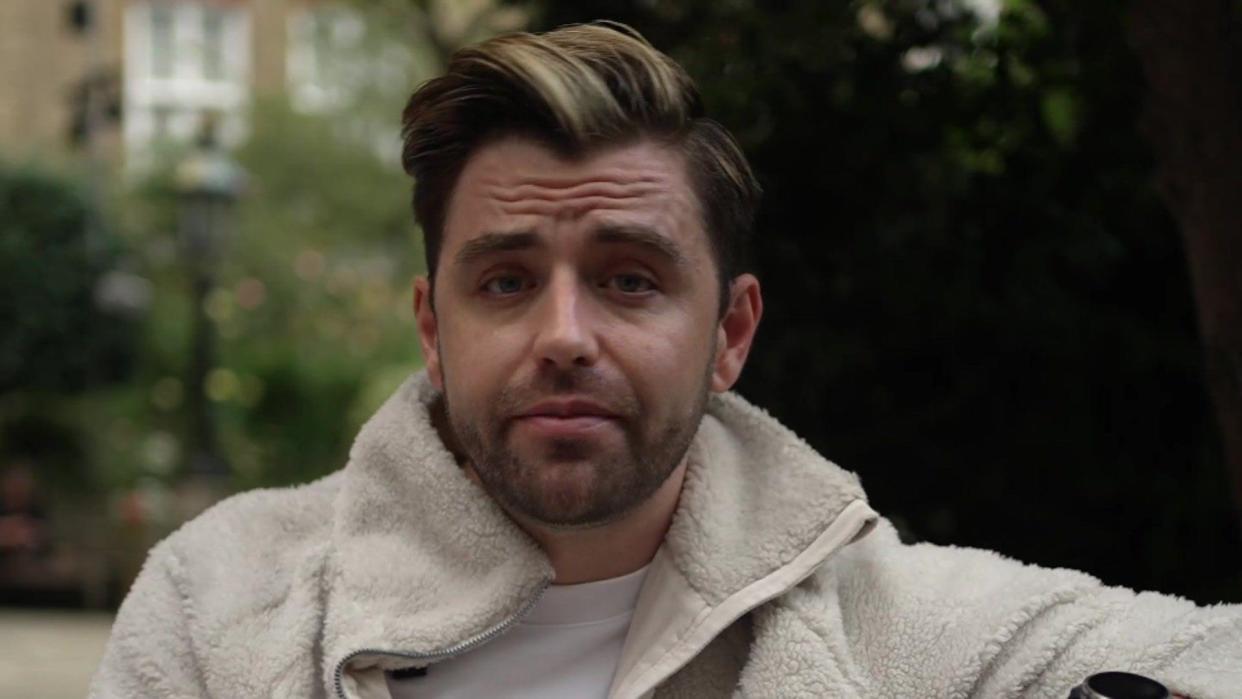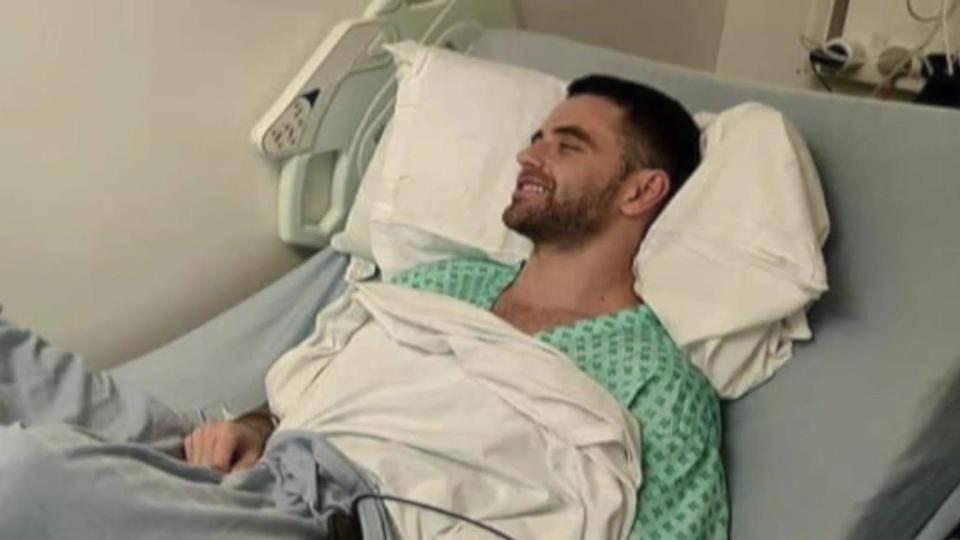'Doctors found a tumour when I got my West End break'

A musical theatre actor who was diagnosed with a lung tumour the same day he got his big break in a show in London's West End says he postponed surgery for three months so he could star in the production.
Jarryd Nurden, 32, who stars in We Will Rock You, had what he thought was a “terrible flu” in December 2022 - but an X-ray revealed it was actually a 4cm (1.5in) mass on his lung, which he later learned was cancerous.
Mr Nurden said he did not regret his decision to postpone surgery and now wanted to get back on stage, adding: "My burning desire to still perform in the West End has always been there."
A large study has suggested that delaying treatment for many types of cancer may increase the risk of dying from the disease.

Mr Nurden, who grew up in South Africa, told BBC London he realised he wanted to be an actor at age 16 and moved to London in 2021 to achieve his dream.
However, after landing his first West End role in Cinderella, the show was cancelled.
"I did more auditions and I kept showing up, and I kept training and I kept singing and I kept dancing, kept acting," he said.
"Thankfully, a year later I got We Will Rock You at the London Coliseum.
"It was the most mind-blowing experience working with Queen, working with Ben Elton, working with the talent that was in that company."

Mr Nurden says that on the same morning he signed a contract for the show, he was asked to attend a cancer clinic.
"That's when I was told I had a 4cm lung tumour and they wanted to operate," he continued.
"I'm feeling fit and feeling amazing and feeling so healthy - it's a quick three-month contract in the West End, and I just said to him in that moment, 'please, please can I just do the show? I've dreamt about this my whole life'.
Mr Nurden said his doctor allowed him to postpone surgery for three months as he believed the tumour was benign.
Mr Nurden said he remembered feeling it was an "incredible" reprieve, but three weeks after surgery he "got the dreaded phone call from my doctor that no-one is ever prepared for, to say 'you have cancer'".

He added: "It was one of the darkest, hardest, toughest periods ever in my life that I had to go through - an open surgery to remove half my lung.
"But whilst I was going through everything, my burning desire to still perform in the West End has always been there."
Currently clear of cancer, Mr Nurden said: "The ultimate goal now is to really get strong, fighting fit and audition and hopefully, hopefully, get back into the West End one day."
In 2020, the results of a large-scale systematic review were published, which suggested that delaying cancer surgery might increase the chance of death from the illness.
A study by researchers from the London School of Hygiene & Tropical Medicine, King’s College London and Queen’s University, Canada, suggests a four-week delay in treating some cancers could result in a 10% increase in the risk of dying.
Claire Taylor, chief nursing officer at Macmillan Cancer Support, said: “When diagnosed and treated early, it’s more likely that cancer will be successfully treated.
"But everyone’s experience with cancer is personal to them and the care people receive should revolve around their own health needs, who they are and what they need to manage their treatment well."
She added: “Following a cancer diagnosis there can be a lot to get your head around and we’d urge anyone who has concerns or questions about their treatment to speak to their medical team to understand the benefits and risks of different options and work out the best route for them."
Listen to the best of BBC Radio London on Sounds and follow BBC London on Facebook, X and Instagram. Send your story ideas to hello.bbclondon@bbc.co.uk


